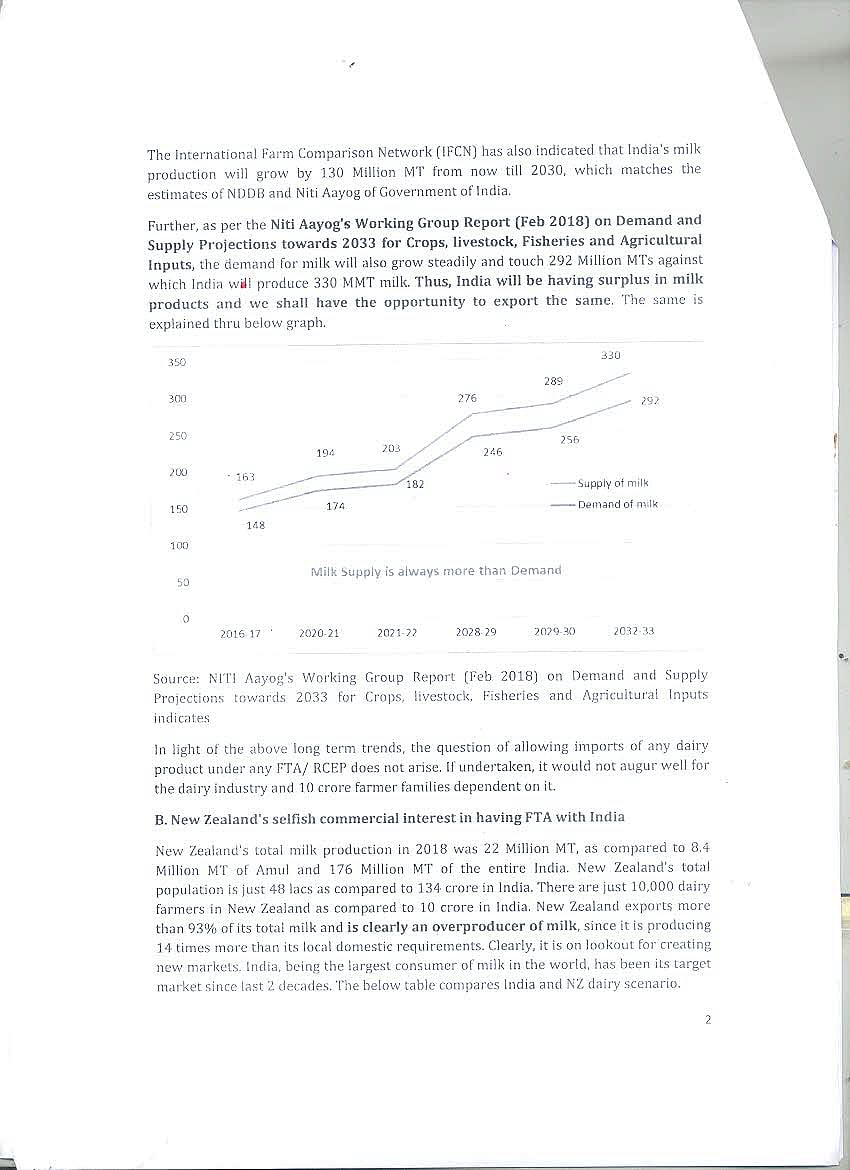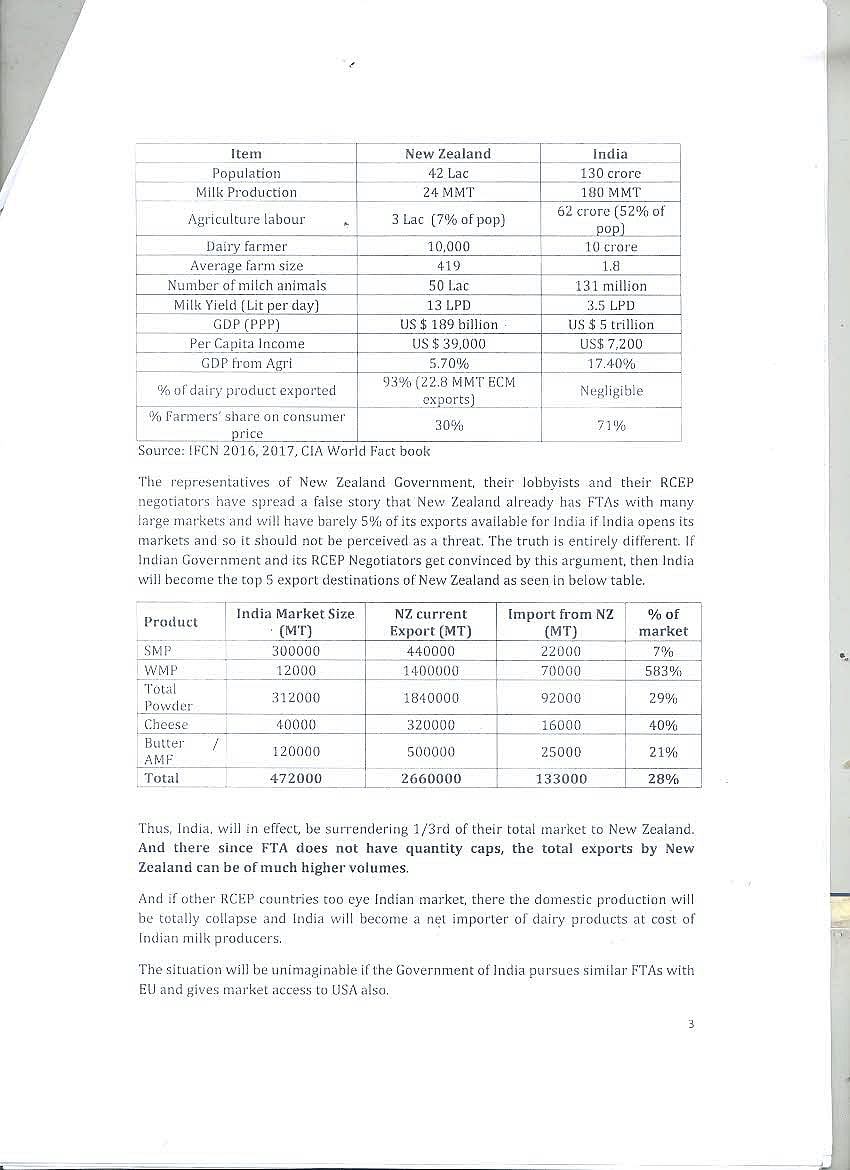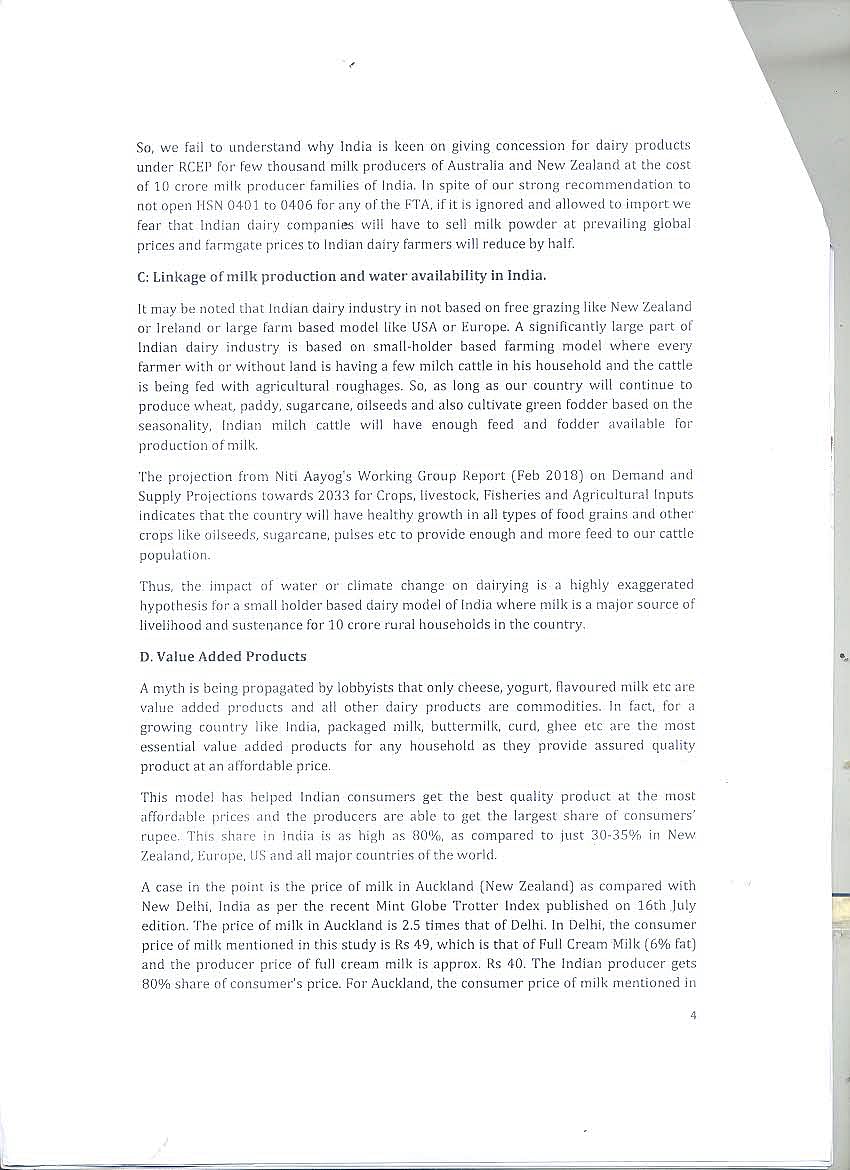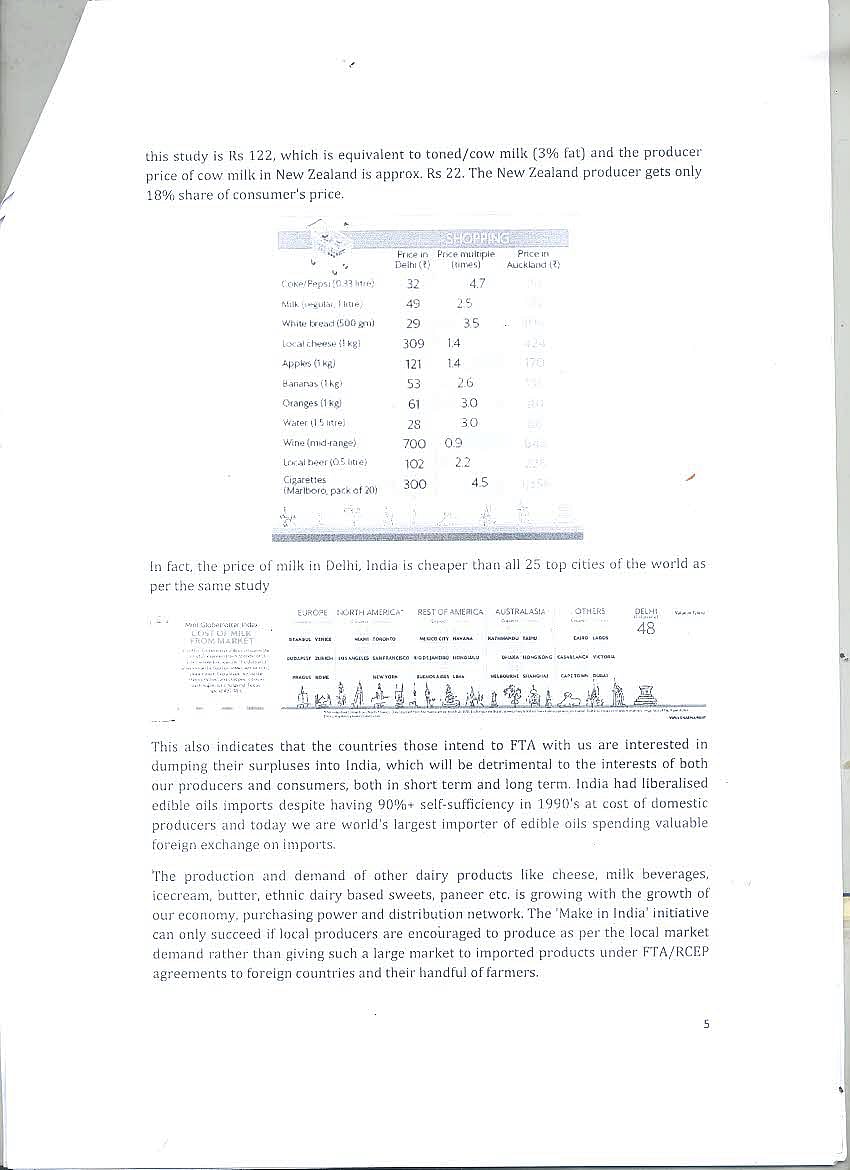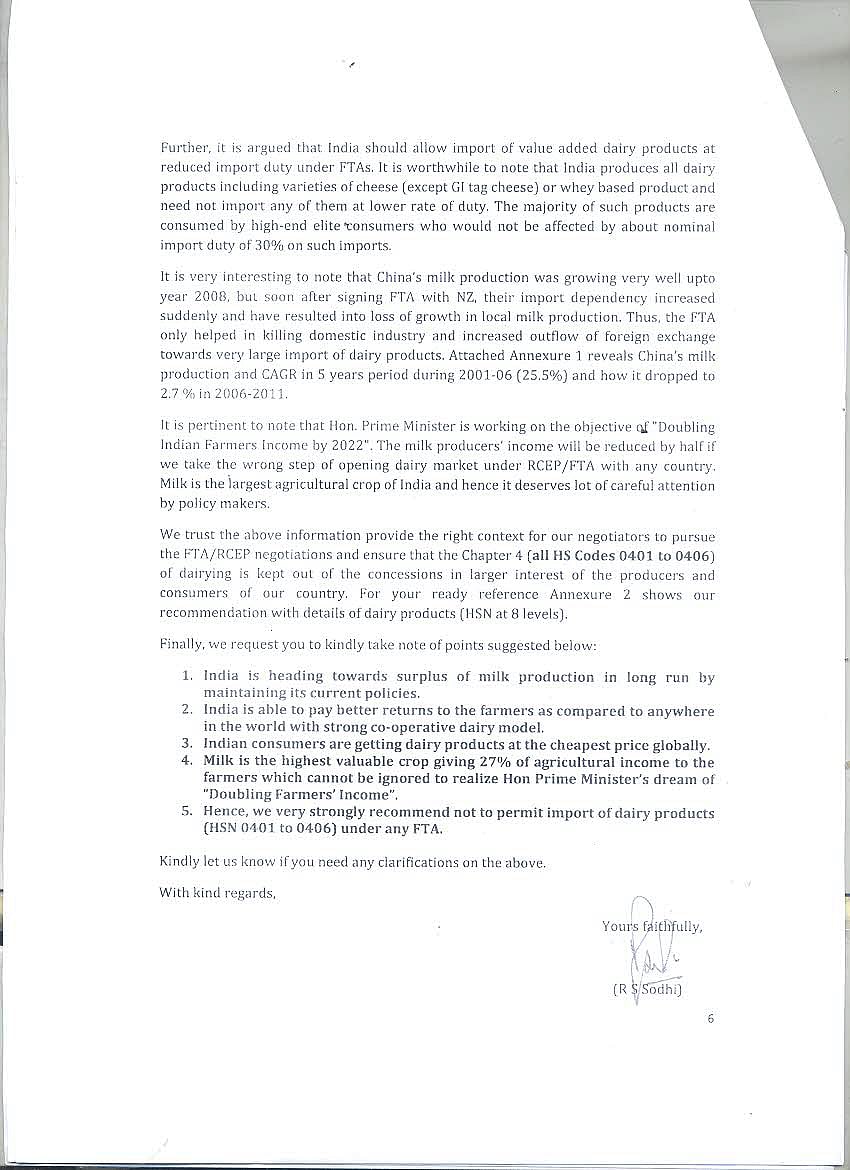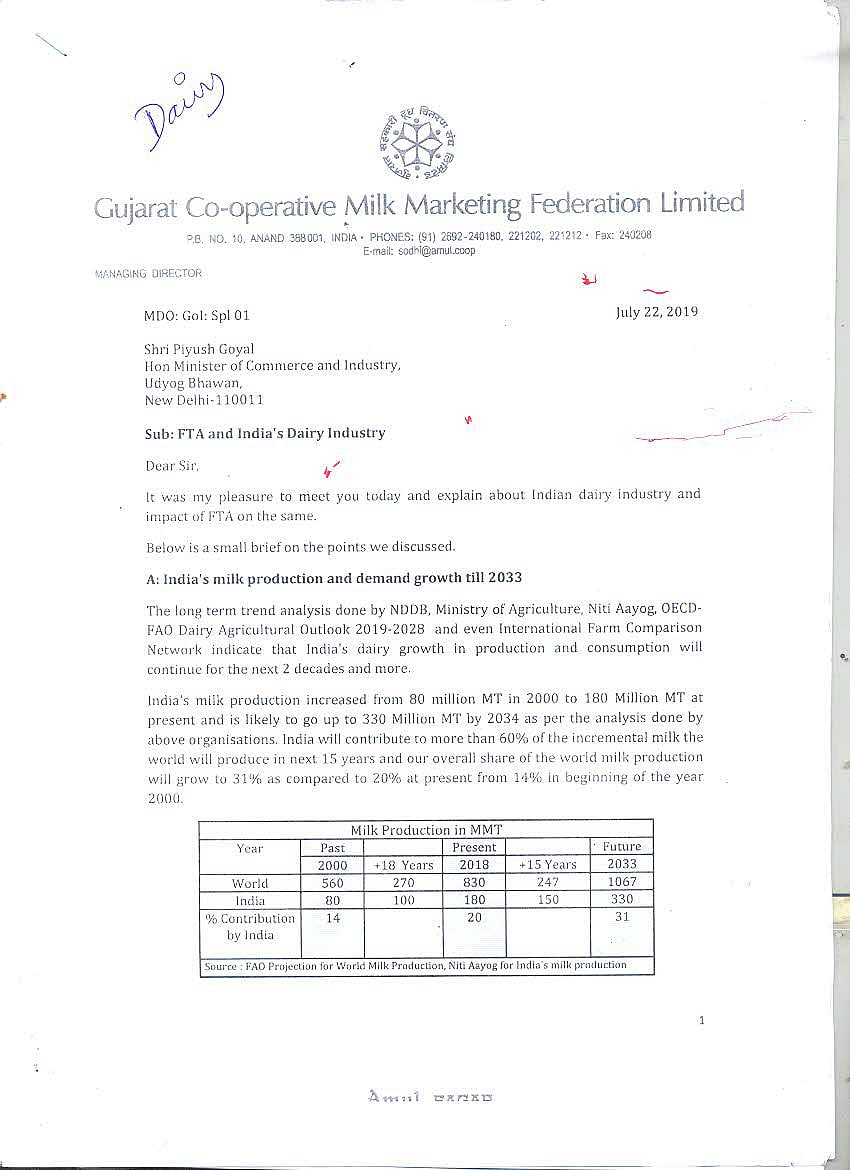RCEP: Amul warns Modi govt, letter to Piyush Goyal likely to fall on deaf ears
Opposing RCEP, Amul’s managing director RS Sodhi wrote a letter to Piyush Goyal in July and warned him about its adverse impact on the domestic dairy sector

On Saturday, November 2, as hectic negotiations to finalise the Regional Comprehensive Economic Partnership (RCEP) entered final stage in Bangkok; PM Narendra Modi – ignoring the interests of the largest dairy cooperative of Gujarat, Amul – hinted that India will sign the agreement without much deliberation.
“Agreement is in interests of the country and of all nations involved in the negotiation,” pointed out the PM after landing in Bangkok where 10-nation ASEAN (Association of Southeast Asian Nations) and six other countries — India, China, Japan, South Korea, Australia and New Zealand were engaged in intense negotiations to seal the deal.
However, thousand miles away from Bangkok, hundreds of milk producers who gathered in Anand district on Thursday to mark the 74th foundation day of Amul felt cheated and let down by the government.
Expressing their grievances before the local media, milk producers said that the Centre was bogged down by international lobbyists. “The government was informed in writing with supporting data about the ill-effect of the RCEP on the dairy industry. Despite that they are likely to go ahead, putting dairy products under RCEP,” said a community leader over the phone.
A letter, dated July 22, 2019, shows that the Gujarat Cooperative Milk Marketing Federation Limited, popularly known as Amul, had warned the government about the adverse impact of RCEP and urged New Delhi not to sign the deal.
Signed by managing director of Amul, RS Sodhi, the letter was sent to the Union Minister of Commerce and Industry, Piyush Goyal, on the same date.
Citing data collected from “Niti Aayog’s working group reports on demand and supply projections towards 2033 for corps, livestock, fisheries and agricultural inputs”, the letter says that if implemented, RCEP will not “augur well for the dairy industry and 10 crore farmers dependent on it.”
“The demands for milk will grow steadily and touch 292 Million MTs against which India will produce 330 MMT milk. Thus, India will be having a surplus in milk products and we shall have the opportunity to export the same…In the light of the above trends, the question of allowing imports of any dairy product under any FTA/RCEP does not arise,” reads the letter.
The letter specifically mentioned New Zealand’s “selfish commercial interests” and their “lobbyists” behind the push for the deal, saying, “since it produces 14 times more than its local domestic requirement…it is on the lookout for a new market. India being the largest consumer of Milk in the world has been its target market for last two decades.”
Stating that India will, in effect, surrender one-third of its market to New Zealand if it sings the deal, Amul said that “the situation will be unimaginable if the Government of India pursues similar FTAs with EU and gives market access to the USA.”
Citing an example of China which was growing fast in milk production until it signed the deal in 2008, Amul appealed to the government to not permit dairy products under the FTA.
Although it is not known whether the government has put dairy products under the FTA or not, it has been claimed by a section of media that Goyal has assured Amul that the Centre will not take any decision under RCEP which would adversely affect milk-producers.
Follow us on: Facebook, Twitter, Google News, Instagram
Join our official telegram channel (@nationalherald) and stay updated with the latest headlines

